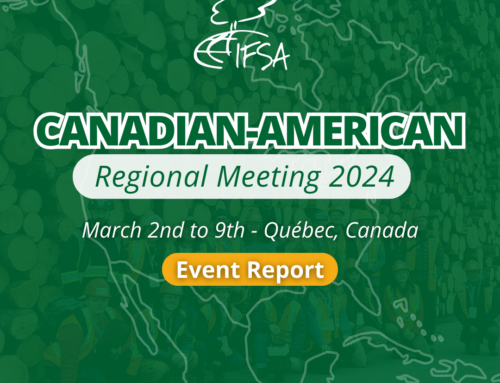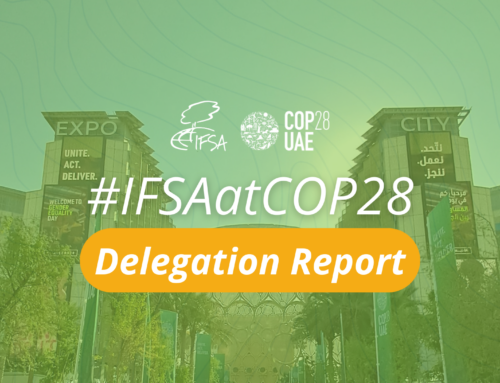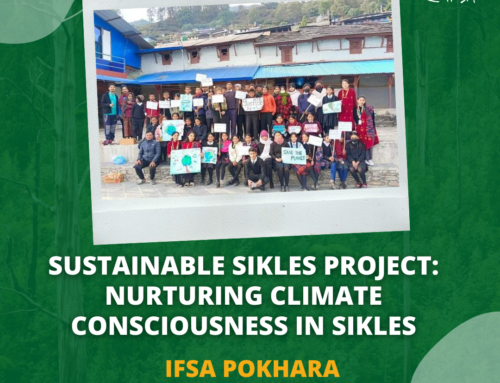Delegation Report by Ann-Christin Müller
[caption id="attachment_1411" align="alignnone" width="1391"]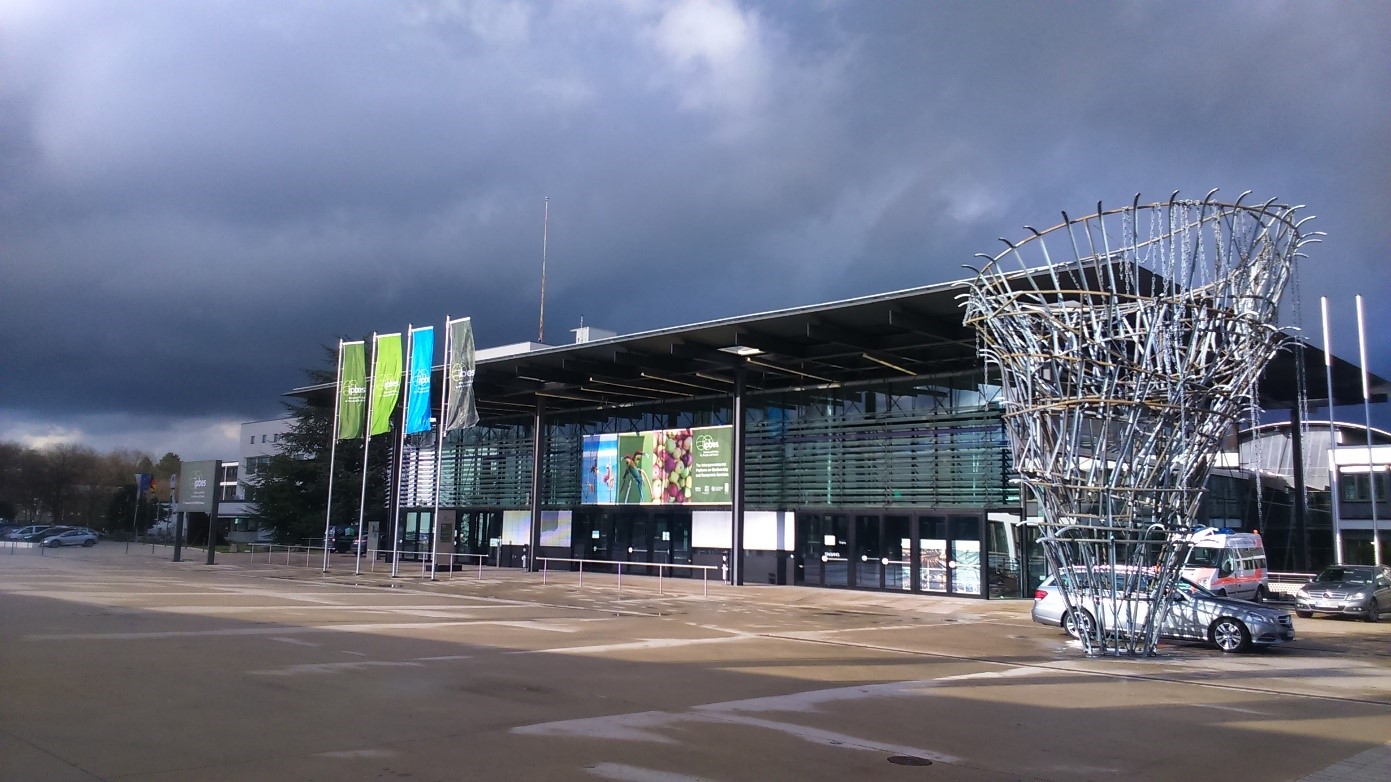 World Conference Center Bonn[/caption]
The 5th plenary session of IPBES (Intergovernmental Science-Policy Platform on Biodiversity and Ecosystem Services) took place in Bonn, Germany, from 03/07/17-03/10/17. There were two different kinds of meetings: Plenary sessions, the decision-making body, and contact groups on special topics. Chairman of the session was Sir Robert Watson from the UK. He is a well-known atmosphere scientist who worked for the IPCC.
In contact groups topics were discussed in depth. Their work is mainly to discuss drafts paragraph-by-paragraph until the formulation fits all member states. This can be a long process. The plenary sessions are more general. Every decision made in a contact group has to be confirmed by the plenary.
Opening Session:
The session was kicked off by some introducing words by the IPBES secretariat and the German government.
For a start Richard Kinley, UNFCCC, and Guy Midgley (Stellenbosch University, South Africa) outlined the main points of recent research and policy on biodiversity and climate change.
Opening Statements:
Member states maintained the importance of IPBES with varying focusses. Mexico gave a report on COP13 in Cancun 2016. There was also a review on the stakeholder day in the run-up to IPBES-5 by the open-ended Stakeholder Network.
Decisions Concerning Coming Plenary Sessions:
IPBES-6 will take place in Medellin, Colombia from 03/18/18-03/24/18. Member states are invited to be the host of IPBES-7 from 05/13/19-05/18/19. The organizational matters will be coordinated by the executive secretary
Organizational Matters:
Estonia and Romania are welcomed as new IPBES member states.
Agenda Items:
Budget:
The executive secretary gave a presentation on budget and fundraising. At the moment, the financial situation of IPBES is disastrous. The budget for the period from 2017-2019 is lacking 3.4 Mio. US $. The financing gap has an immediate impact on ongoing assessments and activities.
Indigenous and Local Knowledge Systems (ILK):
[caption id="attachment_1412" align="alignright" width="340"]
World Conference Center Bonn[/caption]
The 5th plenary session of IPBES (Intergovernmental Science-Policy Platform on Biodiversity and Ecosystem Services) took place in Bonn, Germany, from 03/07/17-03/10/17. There were two different kinds of meetings: Plenary sessions, the decision-making body, and contact groups on special topics. Chairman of the session was Sir Robert Watson from the UK. He is a well-known atmosphere scientist who worked for the IPCC.
In contact groups topics were discussed in depth. Their work is mainly to discuss drafts paragraph-by-paragraph until the formulation fits all member states. This can be a long process. The plenary sessions are more general. Every decision made in a contact group has to be confirmed by the plenary.
Opening Session:
The session was kicked off by some introducing words by the IPBES secretariat and the German government.
For a start Richard Kinley, UNFCCC, and Guy Midgley (Stellenbosch University, South Africa) outlined the main points of recent research and policy on biodiversity and climate change.
Opening Statements:
Member states maintained the importance of IPBES with varying focusses. Mexico gave a report on COP13 in Cancun 2016. There was also a review on the stakeholder day in the run-up to IPBES-5 by the open-ended Stakeholder Network.
Decisions Concerning Coming Plenary Sessions:
IPBES-6 will take place in Medellin, Colombia from 03/18/18-03/24/18. Member states are invited to be the host of IPBES-7 from 05/13/19-05/18/19. The organizational matters will be coordinated by the executive secretary
Organizational Matters:
Estonia and Romania are welcomed as new IPBES member states.
Agenda Items:
Budget:
The executive secretary gave a presentation on budget and fundraising. At the moment, the financial situation of IPBES is disastrous. The budget for the period from 2017-2019 is lacking 3.4 Mio. US $. The financing gap has an immediate impact on ongoing assessments and activities.
Indigenous and Local Knowledge Systems (ILK):
[caption id="attachment_1412" align="alignright" width="340"]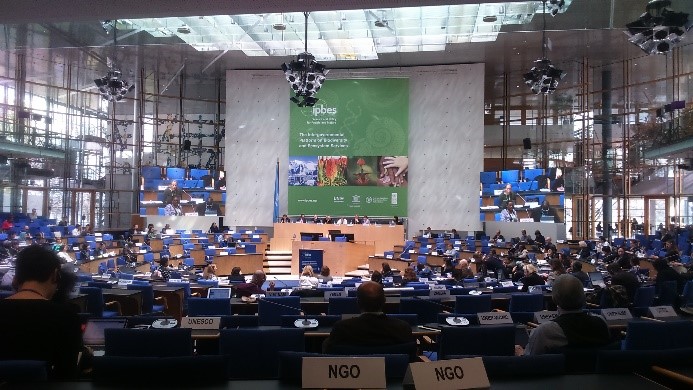 Plenary session[/caption]
The secretariat introduced an approach for ILK including for phases: 1. Defining problems and goals, 2. Bringing together evidence and data from multiple sources, 3. Appropriately engaging IPLCs in reviewing draft assessments and 4. “giving back” knowledge and insights to IPLCs. This approach was supported by many members. Later, there were mainly discussions on the use of language.
Knowledge and Data:
The proposed plan was presented by the secretariat as well as their work in the last year. The suggestion of implementing a web-based infrastructure was supported by a majority. The Republic of Korea suggested to host a workshop on identifying knowledge gaps.
Policy Support Tools and Methodologies:
The secretariat presented a catalogue of policy support tools and methodologies. Generally, it was remarked, that it is to focused on European work and its scope should be expanded.
Pending Assessments:
[caption id="attachment_1413" align="alignright" width="434"]
Plenary session[/caption]
The secretariat introduced an approach for ILK including for phases: 1. Defining problems and goals, 2. Bringing together evidence and data from multiple sources, 3. Appropriately engaging IPLCs in reviewing draft assessments and 4. “giving back” knowledge and insights to IPLCs. This approach was supported by many members. Later, there were mainly discussions on the use of language.
Knowledge and Data:
The proposed plan was presented by the secretariat as well as their work in the last year. The suggestion of implementing a web-based infrastructure was supported by a majority. The Republic of Korea suggested to host a workshop on identifying knowledge gaps.
Policy Support Tools and Methodologies:
The secretariat presented a catalogue of policy support tools and methodologies. Generally, it was remarked, that it is to focused on European work and its scope should be expanded.
Pending Assessments:
[caption id="attachment_1413" align="alignright" width="434"]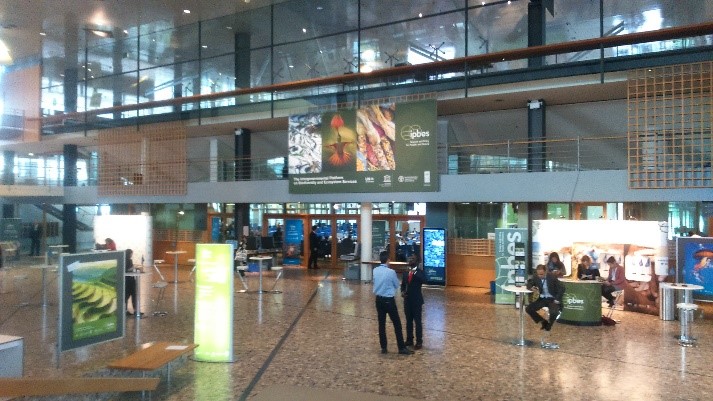 Foyer of the plenary hall[/caption]
Mrs. Larigaudarie presented the revised scoping report for an assessment on the sustainable use of wild species. The focus laid on whether and when to initiate work on this and other outstanding assessments. Furthermore, she proposes not to start new reports in 2017 due to the budget constraints.
The chair assumed that every assessment would cost 1 Mio. $ minimum based on a minimum number of experts and meetings to ensure report quality.
Many developed countries supported the idea to postpone assessments to the second work phase to meet with the budget restrictions and to maintain report quality. But this was opposed by many developing countries.
Capacity Building:
It was figured out, that the most important issue concerning capacity building is an effective use of resources due to cost-efficiency. This should be conducted by a transparent collaboration of the task force on capacity building with governments and stakeholders.
Finally, it was stated, that there is a need to discuss this issue at IPBES-6.
Development of a Second Work Program and Review of the Platform:
Foyer of the plenary hall[/caption]
Mrs. Larigaudarie presented the revised scoping report for an assessment on the sustainable use of wild species. The focus laid on whether and when to initiate work on this and other outstanding assessments. Furthermore, she proposes not to start new reports in 2017 due to the budget constraints.
The chair assumed that every assessment would cost 1 Mio. $ minimum based on a minimum number of experts and meetings to ensure report quality.
Many developed countries supported the idea to postpone assessments to the second work phase to meet with the budget restrictions and to maintain report quality. But this was opposed by many developing countries.
Capacity Building:
It was figured out, that the most important issue concerning capacity building is an effective use of resources due to cost-efficiency. This should be conducted by a transparent collaboration of the task force on capacity building with governments and stakeholders.
Finally, it was stated, that there is a need to discuss this issue at IPBES-6.
Development of a Second Work Program and Review of the Platform:
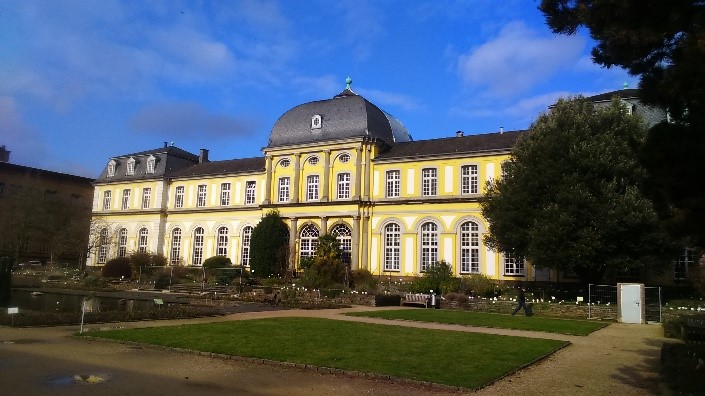 A proposal for a review with an internal and external component for the first work program were introduced by the secretariat. An internal review panel should consist of 10 experts managed by an officer of the secretariat or an external agency. A questionnaire as guideline for the review process should be developed. Limiting factors are time and budget. The review should be finished soon so as its outcomes can be used in the implementation of the second work program.
First the pros and cons of an internal or external review of the first work program were discussed. Due to the low budget, an internal review was advantageous. But under consideration of the recommendation of IPBES in general, an external review would be preferred. The compromise was that there will be an internal mid-term review to improve the strategy for the second work program and after finishing the first work program an external review. This review will be conducted by a professional consultancy which has experience in auditing those processes.
Later the timing of the second work program was on the agenda. A 10-year horizon was considered to coordinate with the 2030 agenda for Sustainable Development of CBD. There was some disagreement on whether completing ongoing assessments during the first work program or skipping them to the second work program.
Sustainable Use of Wild Biodiversity:
Firstly, there was a discussion on the question which species and ecosystems will be included in the assessment. Then, consistent use of language and indicators for the assessment were reviewed.
Communication and Stakeholder Engagement and Strategic Partnerships:
Mrs. Larigaudarie announced that IPBES signed strategic partnerships with CMS, CITES and Ramsar Convention. Further agreements will follow soon.
Moreover, a brand strategy and media outreach plan for IPBEs were presented including a three-point plan.
Personal review:
To me it was an interesting experience to take part on IPBES-5. I expected a more substantive discussion, than it was. The main part of the plenary were organizational matters. In the contact groups were intense discussions on texts to make them fit every member state. This was quite boring to me as an observer, but I got a good insight in the decision-making process in those conferences. So, in general I can recommend every interested person to take part of such an event.
[caption id="attachment_1415" align="alignnone" width="1391"]
A proposal for a review with an internal and external component for the first work program were introduced by the secretariat. An internal review panel should consist of 10 experts managed by an officer of the secretariat or an external agency. A questionnaire as guideline for the review process should be developed. Limiting factors are time and budget. The review should be finished soon so as its outcomes can be used in the implementation of the second work program.
First the pros and cons of an internal or external review of the first work program were discussed. Due to the low budget, an internal review was advantageous. But under consideration of the recommendation of IPBES in general, an external review would be preferred. The compromise was that there will be an internal mid-term review to improve the strategy for the second work program and after finishing the first work program an external review. This review will be conducted by a professional consultancy which has experience in auditing those processes.
Later the timing of the second work program was on the agenda. A 10-year horizon was considered to coordinate with the 2030 agenda for Sustainable Development of CBD. There was some disagreement on whether completing ongoing assessments during the first work program or skipping them to the second work program.
Sustainable Use of Wild Biodiversity:
Firstly, there was a discussion on the question which species and ecosystems will be included in the assessment. Then, consistent use of language and indicators for the assessment were reviewed.
Communication and Stakeholder Engagement and Strategic Partnerships:
Mrs. Larigaudarie announced that IPBES signed strategic partnerships with CMS, CITES and Ramsar Convention. Further agreements will follow soon.
Moreover, a brand strategy and media outreach plan for IPBEs were presented including a three-point plan.
Personal review:
To me it was an interesting experience to take part on IPBES-5. I expected a more substantive discussion, than it was. The main part of the plenary were organizational matters. In the contact groups were intense discussions on texts to make them fit every member state. This was quite boring to me as an observer, but I got a good insight in the decision-making process in those conferences. So, in general I can recommend every interested person to take part of such an event.
[caption id="attachment_1415" align="alignnone" width="1391"]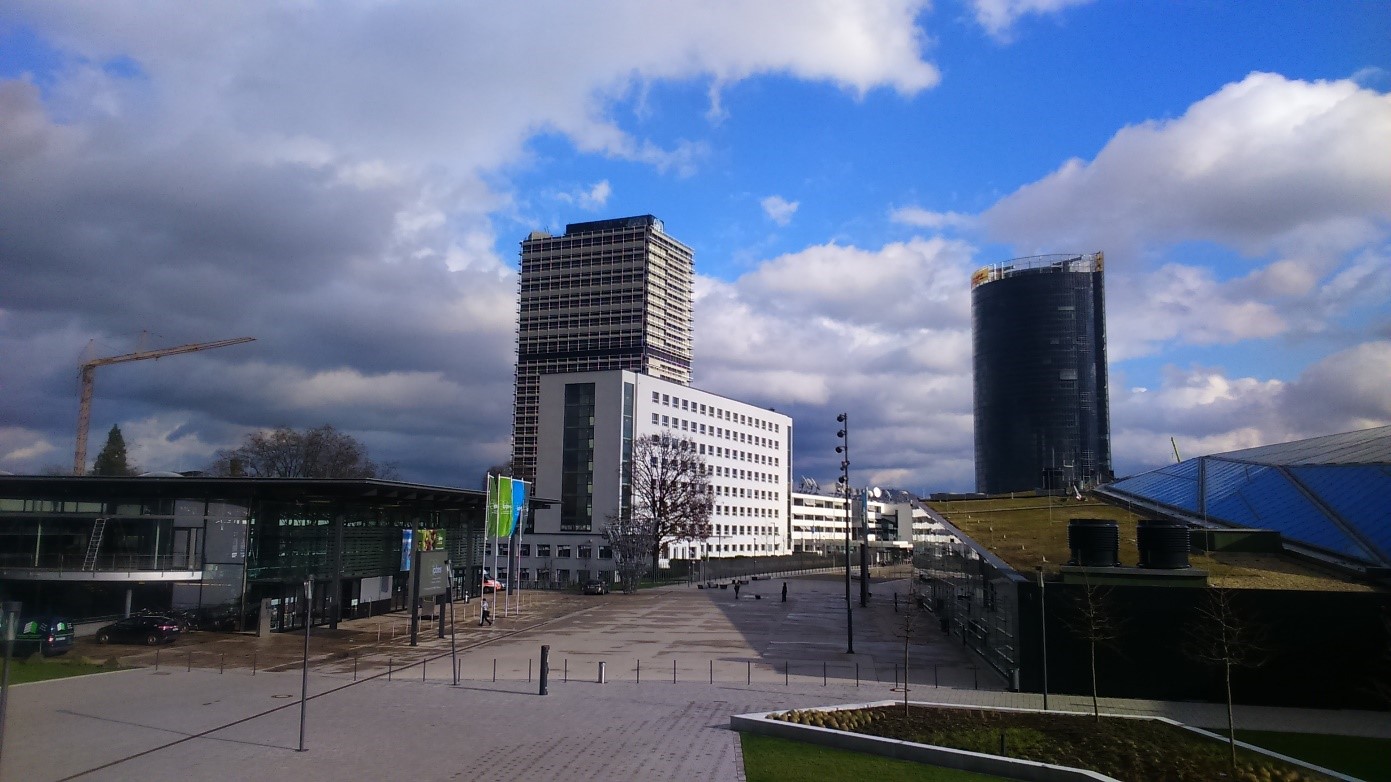 View on UN Building, Plenary Hall, Post Tower and Deutsche Welle[/caption]]]>
View on UN Building, Plenary Hall, Post Tower and Deutsche Welle[/caption]]]>

